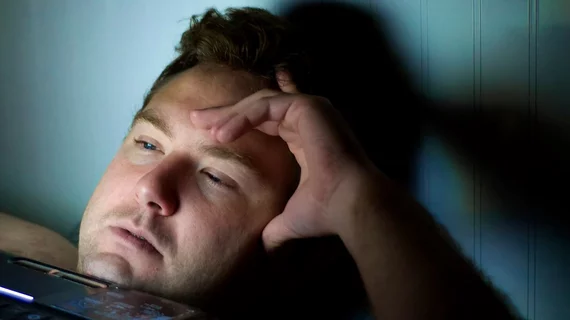More than 90% of radiology, other hospital workers with a sleep disorder were previously undiagnosed
Undiagnosed sleep disorders are common among physicians, including radiologists, and might be silently contributing to medical professionals' poor mental health.
That’s according to new research undertaken by Boston sleep experts, published Friday in JAMA Network Open. Among doctors who screened positive for a sleep disorder, more than 90% were undiagnosed and untreated for their condition.
First author Matthew D. Weaver, PhD, with the Sleep Matters Initiative at Brigham and Women’s Hospital, and colleagues also found that those with sleep problems faced increased odds of burnout and were less likely to feel fulfilled with their career.
“Sleep deficiency is common—often a consequence of rotating or extended-duration shifts, night call, and competing demands,” Weaver and colleagues noted. “Sleep disturbance is a predictor of depression, and insufficient sleep may contribute to the development of burnout.
These factors suggest that sleep deficiency may be an underlying contributor to poor mental health in physicians,” they added.
For their cross-sectional study, the researchers created a Sleep Health and Wellness program and offered it to hospital departments via 40-minute presentations. Physicians then underwent sleep disorder screening, while Weaver et al. assessed their burnout severity and professional fulfillment using validated scoring methods.
In total, 1,047 employees underwent screening from May 2018 to 2019. About 29% came back with at least one sleep disorder, with insomnia (14%) the top condition. More concerning, 92% of doctors who had positive findings were undiagnosed and untreated.
Furthermore, physicians who tested positive for a sleep disorder were associated with a nearly four-fold increased likelihood of professional burnout and were half as likely to be fulfilled with their job.
Weaver and colleagues said previous research has shown similar sleep health programs to be effective and suggested hospitals try to treat such disorders in order to reduce physician burnout.
“This study suggests that undiagnosed and untreated sleep disorders are associated with occupational burnout among healthcare providers,” the authors concluded. “Future studies should be conducted to evaluate the effectiveness of a sleep health and wellness program on reducing burnout symptoms.”

